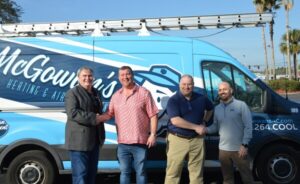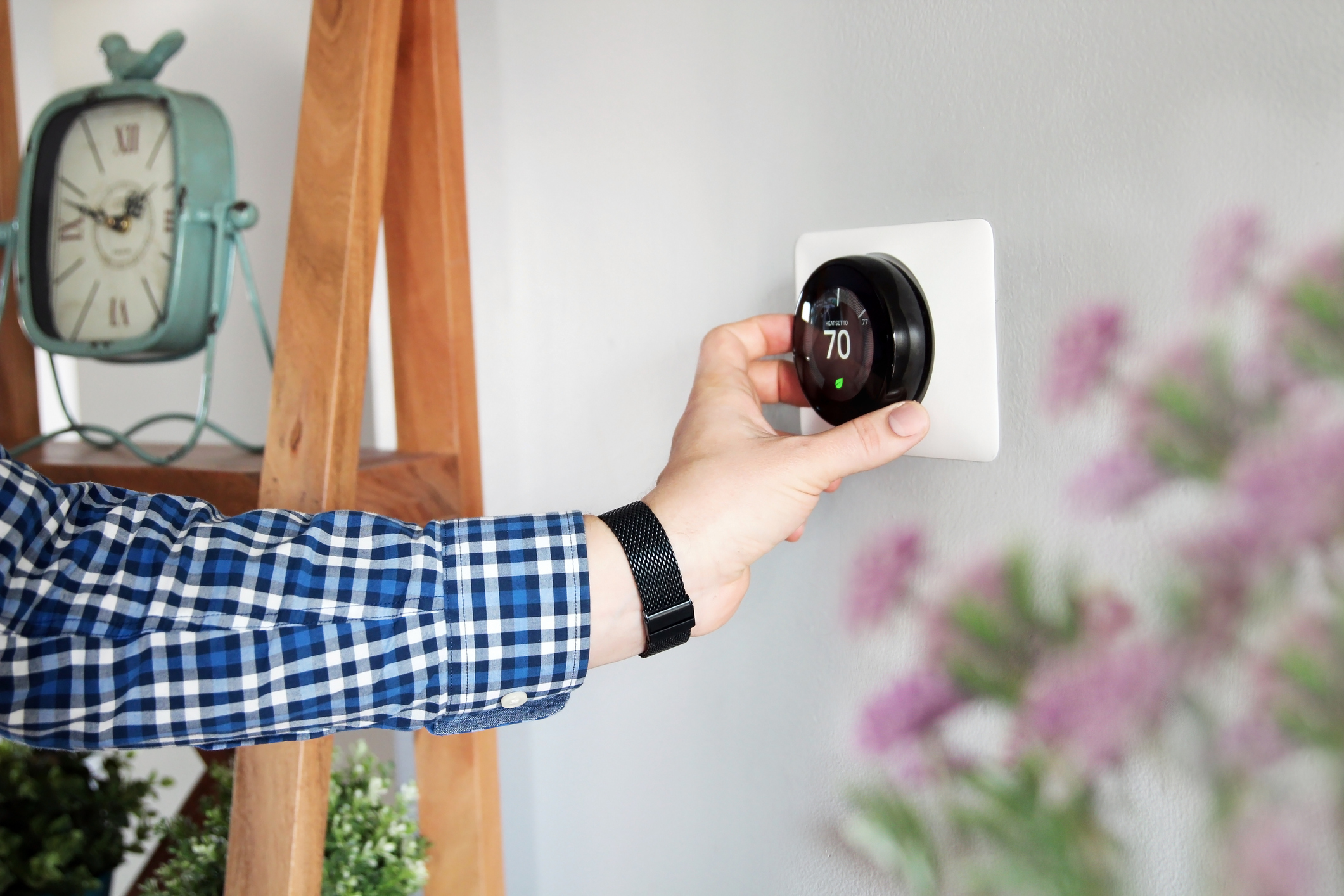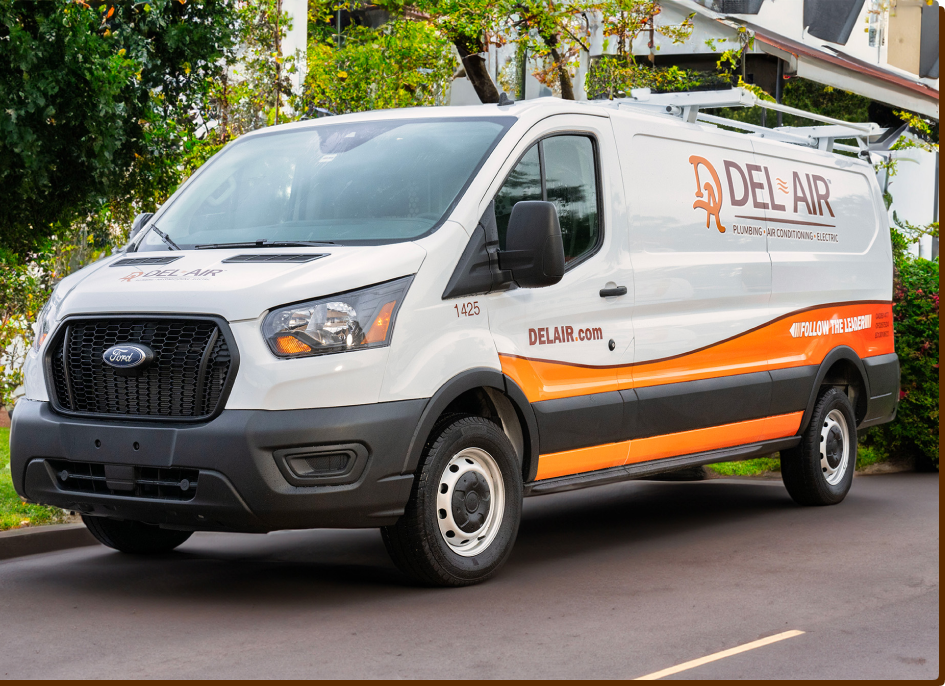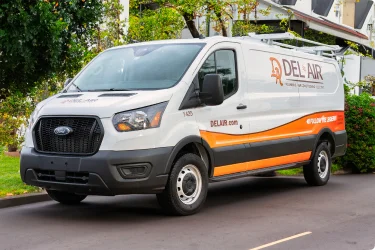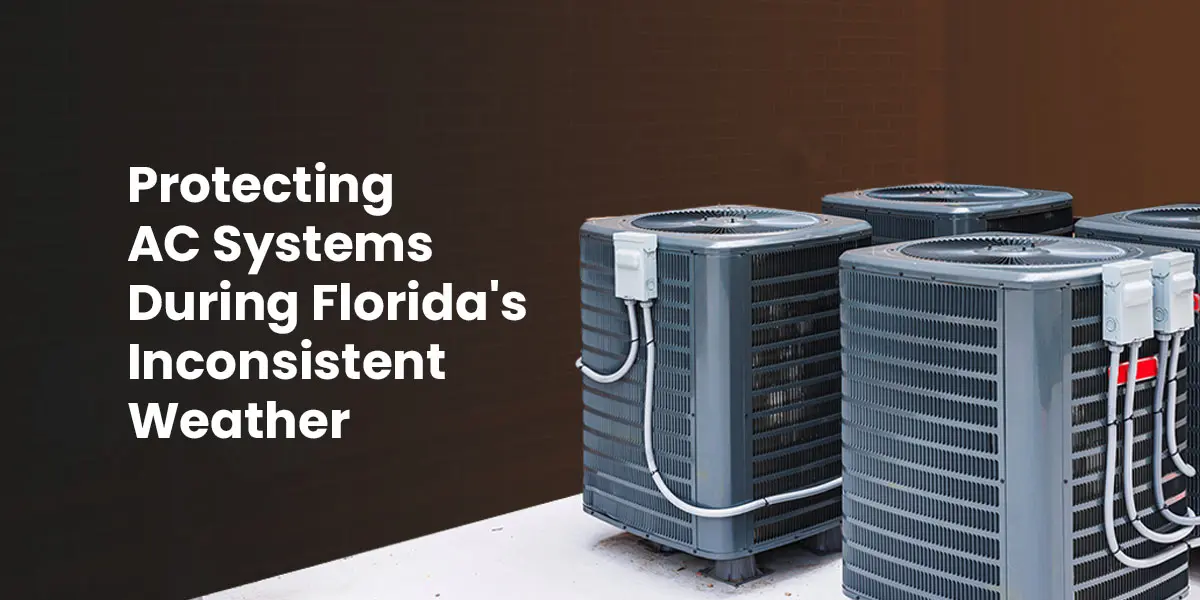
Florida residents rely on air conditioning (AC) to keep their homes cool during the state’s scorching hot days, but the weather also features tropical storms and occasional cool days. Protecting AC systems during Florida’s inconsistent weather prevents damage and helps systems last longer.
You can take precautions to protect your heating, ventilation and air conditioning (HVAC) system, ensuring it operates efficiently and keeps your home cool and comfortable all year.
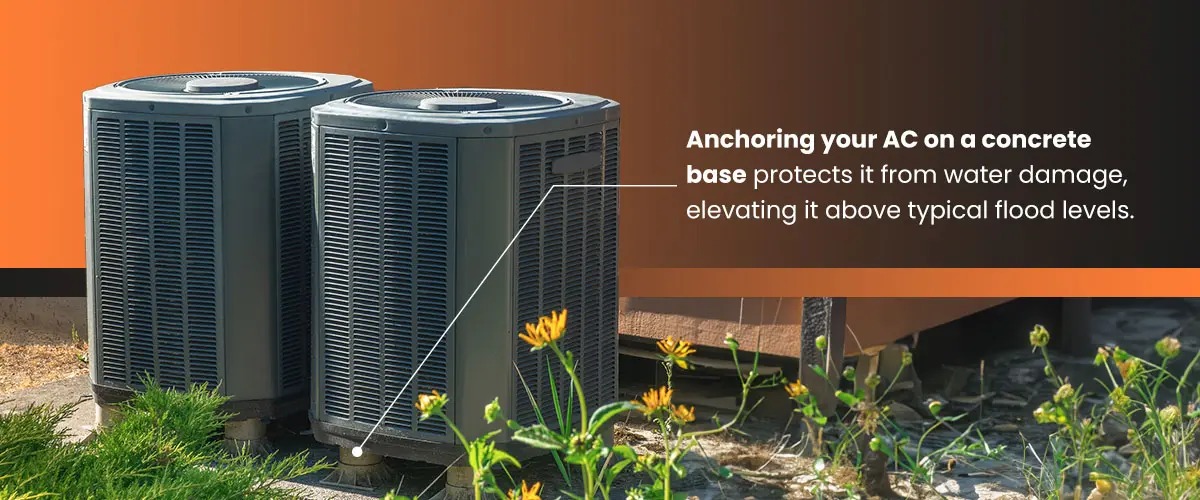
Inconsistent Weather’s Impact on AC Systems
Protecting an HVAC during unpredictable weather is crucial. Florida is well-known for hot, sunny days. However, Florida residents can also experience cool days and severe storms. Protecting your AC during inconsistent weather helps it last longer and operate efficiently. Take measures to protect your AC system from the following types of weather:
Cold Days
Manufacturers design HVAC systems to operate when it’s hot, decreasing a home’s indoor temperature and then maintaining that temperature. Florida’s temperatures are hot most days of the year but occasionally drop during winter months, forcing HVAC systems to change frequently.
HVAC systems must work harder to bring rooms to desired temperatures when they constantly switch between hot and cold air. Frequent temperature shifts can damage an HVAC system and lower its efficiency on cooler days.
Severe Storms
Severe storms are common in Florida during hurricane season between June and November, and they can potentially damage an AC. Hail can damage a system’s refrigerant coil and fins. Strong winds are also an important consideration. Powerful hurricane winds can lift objects and toss them around, potentially striking an AC system.
Storms and lightning strikes can also cause power surges and transformer damage, which can potentially harm your AC system or reduce your system’s efficiency.
How to Protect an Air Conditioner During Storms
The following are some tips you can use to protect your AC system during bad weather:
Cover Your AC System
Place a cover over your AC to protect it from rain, dirt and debris. An AC cover should consist of breathable material so the AC still receives airflow. You should avoid plastic covers and go with a breathable AC cover as they protect your AC from debris without causing mildew growth or rust. Another option is placing an awning or shelter over your AC system.
You can also cover your AC system with a hail guard. Hail guards consist of thick metal mesh, and they typically have hinges for easy AC system access. You can leave a hail guard on your AC all year, and your system will remain safe from hail while maintaining your home’s temperature efficiently.
Clear the Space Around Your System
Keep the area around your AC system clear of objects such as lawn chairs, decorations, toys and tools. Keeping the space around your system clear helps prevent wind from blowing objects against it. You should also trim tree branches so they can’t fall on your AC or drop leaves on the system.
Protect Your System’s Wires
Protecting the wires between your home and your HVAC helps prevent shorts. Sun exposure and temperature fluctuations can deteriorate insulated and non-insulated wires, so securing and covering your system’s wires is important.
Anchor the AC System
Anchoring your AC on a concrete base protects it from water damage, elevating it above typical flood levels. Some concrete bases are taller than others, so you should choose a base’s height based on your area’s potential flood levels. A wall is an additional protection layer against flood waters. You can place a concrete or stone wall around your system to block water, wind and grass clippings.
Protect Your System From Power Surges
Turning your system off during a storm is the best way to protect it from power surges. Lighting strikes and power fluctuations are unpredictable, and turning your system off prevents it from receiving too much power at once. However, Florida’s climate and tropical storms can produce intense heat and humidity. Using a surge protector allows you to protect your system while it operates, giving you a cool home and peace of mind.
Switch to a Smart Thermostat
Smart thermostats help AC systems operate efficiently. They help your system operate at optimal times and conserve energy when you need them to. You can set a smart thermostat to adjust the temperature when you’re home and save energy during days or times you’re not home.
Change the Filter
Filters collect dirt, dust and debris. An AC’s efficiency decreases as a filter collects more dirt and debris, so changing the filter is important. A system must work harder to push air into a home when its filter is dirty, so you should check and replace it periodically. Review your system’s manufacturer instructions to determine how often you should check your AC’s filter.
Schedule Regular Maintenance
Regular maintenance ensures your AC system operates properly. A professional technician has the training and experience to identify potential complications and complete repairs if necessary. Scheduling regular maintenance extends your system’s life span and helps it operate at top efficiency. Spring and fall are the best times to schedule HVAC maintenance because it allows you to prepare your system for the upcoming hot and cold seasons.
Signs Your AC System May Require Repair
If an unprotected AC system sustains storm damage, it may require maintenance or repairs. You should contact a technician to examine your system if you notice the following signs:
- Inefficient cooling
- Breaker box complications
- Unusual AC system noises
- Power surges
- Flooded AC system
A technician can identify damages and determine if your system needs repairs. They can also recommend the best ways to protect your system from future storms and temperature fluctuations.
Contact Del-Air Heating and Air Conditioning for AC Services
Maintaining and protecting your AC system prevents damage from storms and temperature fluctuations. Florida’s unpredictable climate can bring significant winds, rain, lighting strikes and temperature fluctuations. Covering and anchoring your system blocks it from rain, hail and debris, and scheduling regular maintenance and changing your system’s filter extends its life span and ensures it operates efficiently.
Del-Air Heating and Air Conditioning offers quality HVAC services to help your AC system last longer, maintain a comfortable home and conserve energy. We install top brands and service all system types. With 500 fully-stocked trucks, our experienced technicians can examine and repair your system quickly.
Whether your AC system requires routine maintenance or emergency repair following a storm, Del-Air Heating and Air Conditioning technicians can help keep your home cool and comfortable. Contact us to learn more about our services and how we can help you!
Call Us 888-831-2665


